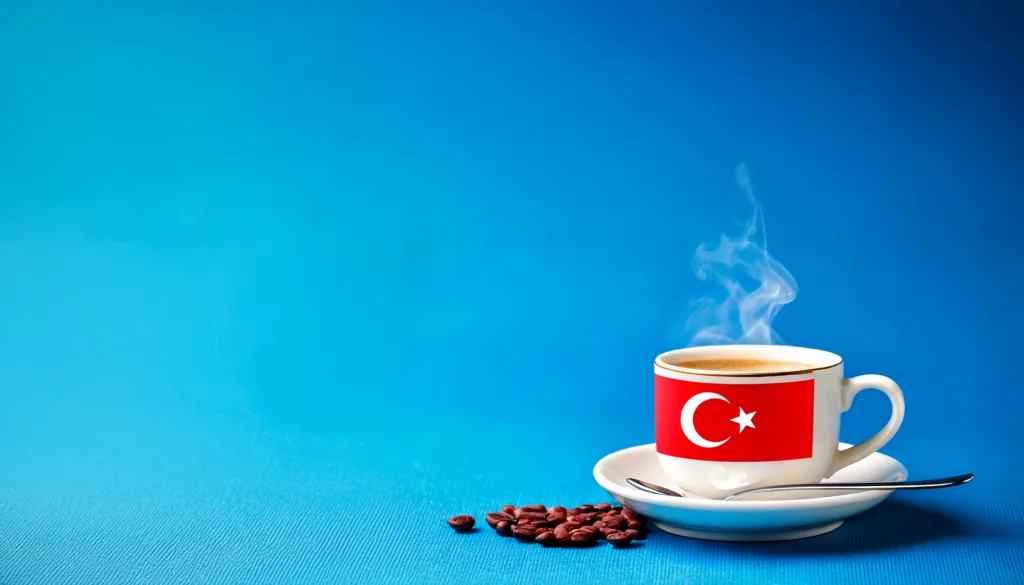
Turkey imports
without
exhaustion.
Turkey imports
without
exhaustion.
from
Can Turkish branded goods simply be imported into Germany if the manufacturer sells them there legally? The Federal Court of Justice has a clear answer – and it could be expensive for parallel importers.
Parallel import of Mehmet Efendi coffee
A Turkish coffee roasting company sells its coffee both in Turkey and via a distributor in the EU under the trademark “Kurukahveci Mehmet Efendi”. However, a German food wholesaler imported the coffee produced in Turkey and marketed there directly to Germany – without the consent of the Turkish trademark owner.
The coffee roasting company saw this as an infringement of its trademark rights and unsuccessfully issued a cease and desist letter to the wholesaler. The case ultimately ended up before the Federal Court of Justice (Federal Court of Justice), which had to make a fundamental decision on the exhaustion of trademark rights in relation to Turkey.
Hintergrundwissen
Was
bedeutet
Erschöpfung
im
Markenrecht?
Die Erschöpfung ist ein zentrales Prinzip im Markenrecht.
Bringt ein Markeninhaber seine Waren selbst oder mit seiner Zustimmung durch Dritte in einem bestimmten Gebiet in den Verkehr, „erschöpfen” sich seine Markenrechte für diese konkreten Waren in diesem Gebiet. Das bedeutet, dass er den Weiterverkauf dieser Waren in diesem Gebiet nicht mehr verbieten kann.
In der EU tritt Erschöpfung nur ein, wenn die Waren mit Zustimmung des Markeninhabers im Europäischen Wirtschaftsraum (EWR), also in der EU sowie in Island, Liechtenstein und Norwegen, in den Verkehr gebracht wurden. Werden Waren außerhalb des EWR verkauft, können Parallelimporte grundsätzlich untersagt werden.
Ausnahmen von diesem Grundsatz bestehen allerdings dann, wenn der Markeninhaber berechtigte Gründe hat, sich dem Vertrieb der Waren zu widersetzen, beispielsweise wenn der Zustand der Waren nach dem Inverkehrbringen verändert oder verschlechtert wurde.
Federal Court of Justice: No special status for Turkey
The Federal Court of Justice confirmed in its Judgment of July 3, 2025 – Ref. I ZR 226/24 The Federal Court of Justice upheld the legal opinion of the lower courts and rejected the wholesaler’s appeal. The Federal Court of Justice clarifies:
The marketing of goods (here: coffee) in Turkey under a name that is protected under the EU Trademark Regulation does not lead to the exhaustion of trademark rights with the consequence that the trademark owner has the law to prohibit the import of these goods into the European Economic Area without his consent.
Association agreement does not help
The wholesaler had argued that the Association Agreement between the EU and Turkey prohibits trade-restrictive measures and must lead to the exhaustion of trademark rights. The Federal Court of Justice rejected this view. Although the agreement contains a ban on quantitative import restrictions, it also contains an explicit exception for the protection of industrial property.
The court emphasized that the association agreement does not pursue the goal of establishing a common internal market as within the EU, but merely aims to establish economic cooperation. Equality with EU member states was therefore not envisaged.
What companies need to consider when importing from Turkey
The ruling creates legal certainty for trademark owners. They can prohibit parallel imports from Turkey into the EU even if they sell their goods there themselves.
Importers, on the other hand, should be careful. Anyone who imports branded goods from Turkey into Germany without the consent of the rights holder risks costly cease and desist letters and injunctions. This also applies to other third countries outside the EEA.
Importers should therefore take the following measures:
- Contractual security with suppliers
- Check whether trademark rights exist in the EU before importing
- If necessary, obtain the consent of the trademark owner
- Take advantage of legal advice
Conclusion
The Federal Court of Justice ruling makes it unmistakably clear that the exhaustion of trademark rights is limited to the EEA. Even special trade agreements such as the EU-Turkey Association Agreement do not change this.
Companies should therefore not rely on the fact that trademark rights are automatically exhausted by sales in third countries. If anything is unclear, legal advice should be sought in good time in order to avoid expensive legal disputes and safeguard your own business model.
We are happy to
advise you about
Trademark law!







